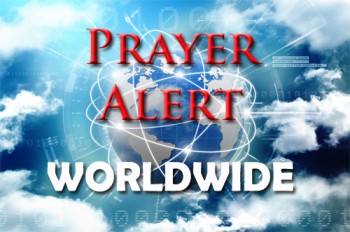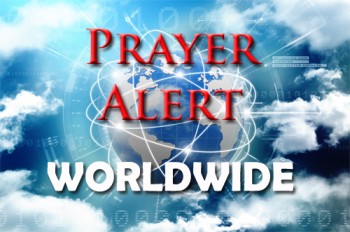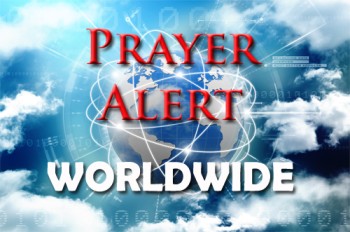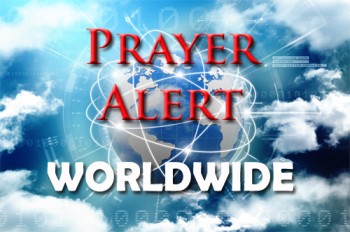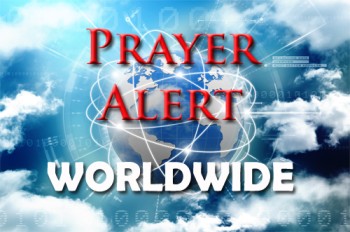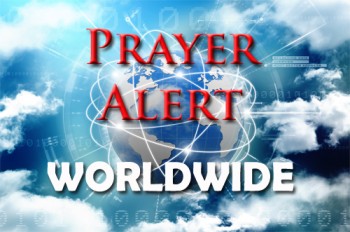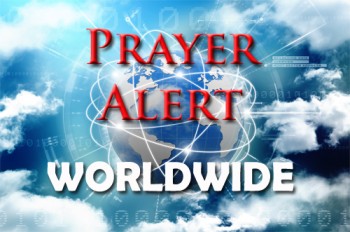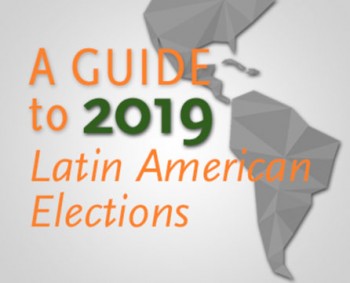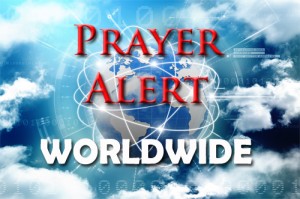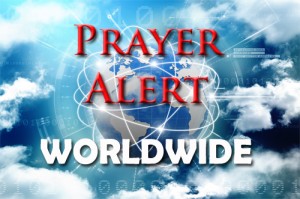Displaying items by tag: Argentina
Argentina: 11 convicted of crimes against transgender women
A landmark human rights trial, lasting nearly four years, concluded on 27 March with 11 former officials convicted of crimes against humanity. This was the first case to focus on the 1976-1983 military dictatorship’s practice of committing sexual violence against transgender women. The trial revealed new atrocities, enhancing the nation's understanding of its traumatic past. During those years, thirty thousand dissenters were abducted, tortured, and ‘disappeared’. The prosecutor said, ‘What is different about this trial is that for the first time in Argentina and in the world, crimes against humanity committed against trans women in the context of state terrorism are condemned.’ The military dictatorship promoted traditional Catholic values and viewed LGBTQ Argentines as subversives. Even being openly gay could lead to jail. The verdict marks a pivotal moment for accountability and remembrance in Argentina's turbulent history.
Argentina: soup kitchens hit by Milei’s austerity measures
In Merlo, long lines form outside communal soup kitchens as inflation soars, causing a hunger crisis among the country's poor. President Javier Milei's austerity measures, which have cut government spending, even funds for soup kitchens, have exacerbated the situation. It is estimated that soup kitchens and other similar groups now serve ten million people, out of Argentina's population of 46 million. However, advocates believe the actual number of food-insecure individuals could be higher due to informal hunger relief efforts in marginalised areas. Outrage is mounting, particularly after one minister promised to help the needy and then refused to meet the crowds outside her office the next day; instead she diverted funds to religious organisations. One social leader has criticised the government for failing to address hunger effectively, despite claiming to prioritise direct assistance.
Argentina: court suspends president’s labour rule changes
Javier Milei, Argentina's new president, encountered a setback on 3 January when a court suspended labour rule changes he introduced in December. The decision came in response to a legal challenge from the largest labour union, which argued that the changes infringed workers' rights. Milei's decree included extending job probation from three to eight months, reducing severance compensation, and allowing the possibility of dismissal for workers participating in blockades. The court ruled that the administration had overstepped its authority in implementing these changes by emergency decree, bypassing the legislature. Since taking office in December, Milei has devalued the country’s currency by 50%, cut transport and energy subsidies, and promised to downsize the state workforce - all measures aimed at addressing poverty and high inflation.
Argentina: 13 dead after intense storm
An intense storm in Argentina left at least 13 people dead and others injured in the southwestern port city of Bahía Blanca. Winds reached up to 140 kilometres (87 miles) per hour in the city on 16 December, and by the next day at least 300 people had been evacuated. The city council said that the situation caused by the storm was a catastrophe, reporting multiple injuries, some extremely serious. The mayor declared three days of mourning, saying: ‘I want to reaffirm our solidarity with the families and loved ones of the 13 deceased people.’ He reminded citizens of the importance of keeping safe by staying home, adding: ‘We are still in an emergency situation, with electrical risk and risk of falling trees and structures.’ The city’s emergency teams received over 100,000 calls about downed trees, power lines and signs, among other damage. President Javier Milei said that his cabinet is working with provincial and municipal authorities to help the victims and respond to the damage.
Argentina: election outcome difficult to predict
Opinion polls are showing an increasingly tight race between Peronist economy minister Sergio Massa and radical libertarian Javier Milei ahead of a runoff ballot for president on 19 November. The two candidates offer polarised visions for the embattled Latin American country, the region's third largest economy, a major supplier of grains, beef and lithium, but also the largest debtor to the International Monetary Fund (IMF). One recent survey showed Massa ahead with 42.4% of the likely vote against Milei on 39.7%, his lead more than cut in half versus the previous poll in late October. He is still seen as the candidate to beat, but Milei has gained ground, winning the backing of conservative Patricia Bullrich, who finished third in the first-round vote, and her powerful ally, former President Mauricio Macri. Significantly, with some 18% of those polled remaining unsure, the outcome is hard to call.
Argentina: profound anti-Semitism
Argentines are far more anti-Semitic than they acknowledge and nearly 40% of the population believes that ‘Jewish businessmen’ are benefiting from the Covid pandemic. ‘In Argentina, we have a very distorted vision of ourselves’, said an award-winning columnist. ‘We think we are not anti-Semitic, but in many ways, this is an anti-Semitic country.’ He went on to say that myths about the Jews are part of Argentina's popular culture. The study’s main author was ‘surprised’ by the magnitude of antisemitic sentiment, particularly among younger people. Argentina is home to over 200,000 Jews, the largest community in Latin America.
Global: gender-based violence
In South Africa a woman is killed every four hours: ‘Our bodies are crime scenes’. Ornate advertising posters of men accused or convicted of murdering women cover the walls of Argentina’s capital. The word FEMICIDA -woman killer- screams out in large black letters under each name. The posters, and thousands of protesters outside Argentina’s Supreme Court in February, reveal the rage over rampant levels of violence against women. In Turkey’s cities last year thousands rallied, demanding the government does not withdraw from a landmark treaty to prevent and combat violence against women. Globally, trends of female journalists being threatened with physical violence, rape, kidnapping. and other abuses are rising. In Spain’s strawberry fields, migrant women face abuse from bosses who routinely sexually harass and exploit them, when they are attempting to support themselves and their families back home. Also see
Latin American Elections – Oct 2019
A briefing on the forthcoming Latin American elections by Yanira Gonzalez - IPC's Regional Representative and Leadership Team member
We really need God’s intervention in the next presidential elections in Latin America. We are facing the DECEPTION of the enemy that makes us pray for our nations not according to God’s perfect will, but according to the manipulation of the media, our bias and agendas.
Please pray for gubernatorial elections that will affect 3 strategic countries:
- Argentina general election - 27 October 2019
- Bolivia general election - 20 October 2019
- Uruguaya general election - 27 October 2019
Like the rest of the Continent, Latin America 2019 presidential elections presents two visions: Conservatism or progressivism & socialism; biblical faithfulness or political correctness. We definitely need to 'Watch and pray'!
The Bible, in Timothy 2:2 commands us "to pray for those who govern and for all authorities." An act of reflection and responsibility. This role has changed in the last 20 years in Latin America, where Christians have formed and strengthened political movements capable of obtaining legislative seats, influencing presidential elections and transferring the debate from ideas to beliefs. Four of the last election campaigns in the region have been under the influence of Christian parties. The candidates supported by these parties won the first round in Brazil (Jair Bolsonaro), Colombia (Iván Duque) and Mexico (Andrés Manuel López Obrador).
Prayer points in regards to the presidential elections of these 3 countries & Latin America:
- That our nations in Latin America would turn back to God. May God help us. We need him desperately to renew our hope and restore our land. We need his forgiveness and healing. May His Spirit sweep across our nations and draw many out of darkness. May believers everywhere draw close to Him and seek his face like never before. “Blessed is the nation whose God is the Lord…” Ps. 33:12
- That Latin America would be faithful in praying for leaders and those in authority, knowing that their decisions directly affect us too. May God give them wisdom and courage as they lead our nations. May He give them a desire to listen for his voice and follow his ways. May God in His mercy, appoint principled, godly men and women into positions of authority in our nations. “When the righteous thrive, the people rejoice; when the wicked rule, the people groan.” Prov. 29:2
- That Latin America would recognize God’s Sovereignty over all. His word reminds us that He is the One who ultimately has the power to position all those in leadership, and to remove them. It is “God who changes the times and seasons; He sets up kings and deposes them. He gives wisdom to the wise and knowledge to the discerning.” Dan. 2:21 “But the plans of the Lord stand firm forever, the purposes of his heart through all generations.” Ps. 33:11
- That Latin America would recognize the real battle is not fought against what is seen, but what is unseen. The real enemy is not a person or political party, but is Satan himself, and his dark forces that oppose God and fight against Truth. “For our struggle is not against flesh and blood, but against the rulers, against the authorities, against the powers of this dark world and against the spiritual forces of evil in the heavenly realms.” Eph. 6:12 “For the weapons of our warfare are not of the flesh but have divine power to destroy strongholds.” 2 Cor. 10:4
- That Latin America would not succumb to worry, fear, or defeat. That we wouldn’t grow so weary that we just give up, and tune out...God is the One who sets free and has the power to restore our nations.
"They will have no fear of bad news; their hearts are steadfast, trusting in the Lord." Ps. 112:7 "Do not be anxious about anything, but in every situation, by prayer and petition, with thanksgiving, present your requests to God. And the peace of God, which transcends all understanding, will guard your hearts and your minds in Christ Jesus." Phil. 4:6-7
- That Latin America would pray for those in authority who are unjustly attacked and accused. That God’s protection would cover His people, that He would surround them with favor as a shield. “No weapon that is formed against you will prosper; and every tongue that accuses you in judgment you will condemn…” Is. 54:17
- That Latin America’s hope would remain in the Lord. That we would recognize His great Power. That we would trust Him and believe that He is Able, and nothing is impossible with Him. “Look at the nations and watch-- and be utterly amazed. For I am going to do something in your days that you would not believe, even if you were told.” Hab. 1:5
Yanira Gonzalez - IPC Latin America Representative / Leadership Team
More at: www.clamor.global
Argentina: protests as inflation soars
Many Argentines blame the IMF for the country’s 2001 financial meltdown, punctuated by a sovereign bond default and steep currency devaluation, which tossed millions of middle-class Argentines into poverty. Now left-leaning activists have taken to the streets to protest the IMF negotiations taking place in Washington while President Macri is trying to convince average Argentines that his policies will attract the investment needed to establish sustainable economic growth. In Buenos Aires, teachers have been staging protests because life is unbearable as the value of the peso continues to decline by a further 30%, sparking even more inflation. They are demanding pay rises, and say they have been living below the poverty line. To watch a video of thousands of people taking to the streets almost every day go to:
Argentina: G20 and state-owned enterprises
Argentina has recently hosted a meeting of the G20 anti-corruption group, with national delegations and international organisations seeking to address the best ways of curtailing corruption and promoting integrity in state-owned enterprises (SOEs). Controlled by national governments, SOEs rank among the largest companies in the world and are often some of the biggest employers in their country. They are central to the daily lives of citizens, providing critical goods and public services in sectors such as transport, utilities, health and telecommunications. When they indulge in corruption and malpractice, citizens feel the impact: trains are delayed, households go without power or water, and the sick are deprived of essential medical treatment. SOEs are particularly vulnerable to corruption because of their closeness to politicians and public officials, and the scale of resources, contracts and operations they control.
